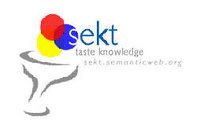My Predictions for 2006+2007
A couple of ideas for whats going to be the trends in the next TWO years (two years, because looking at my predictions I realized that many are to ambitious for just one year).
I expect live broadcasting of events - the last frontier for citizens journalism - to be tackled (not live blogging - video streams!).
Mobile internet will finally really take of (not WLAN - WiMax and UMTS). Google Wallet will make picopayment on the net a reality.
Mainstream media talk a lot about the privacy questions posed by CCTV cameras plus image recognition technology.
I do not expect to see a sudden rise in semantic web adoption in the mainstream web (at least not of its owl centric academic variant). I expect to see an increase in "simple metadata" (think RSS, microformats). I expect to see continuing and increasing interest in Semantic Technologies, (within large applications, for a few corporate intranets and expert system like applications). Semantic Web Services will be increasingly used in "Problem Solving Environments" (move into more constraint domains, use PSM ideas). There will be more interest in the "web" part of Semantic Web, there will be much more interest in multimedia + metadata. There will be less interest in Ontology Learning. Rule languages for the Semantic Web will receive a lot of attention as well as schema/ontology mapping/alignment. Manchester will get an even more prominent role in the DL community.
Politically I expect Iran to be the main story of 2006.









